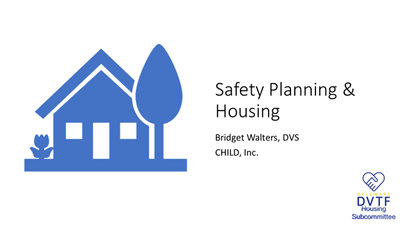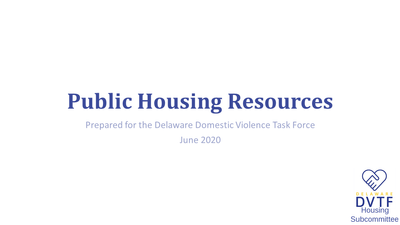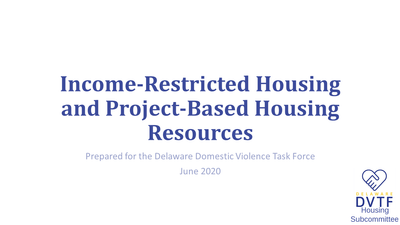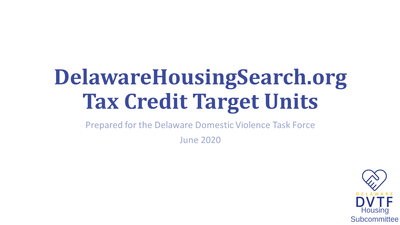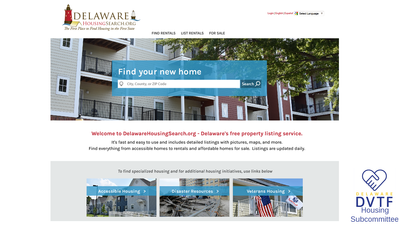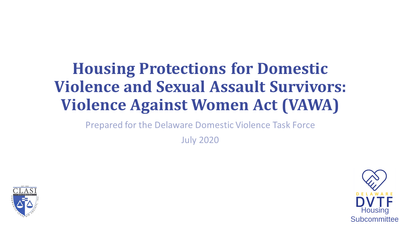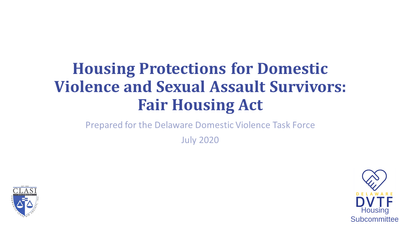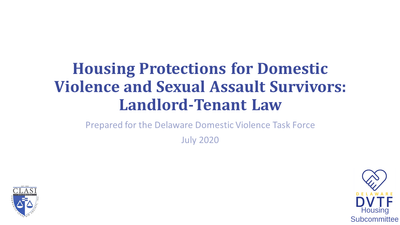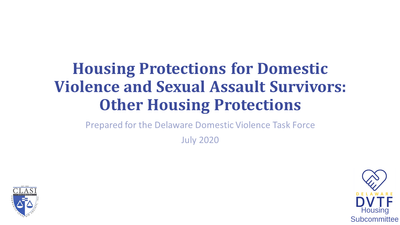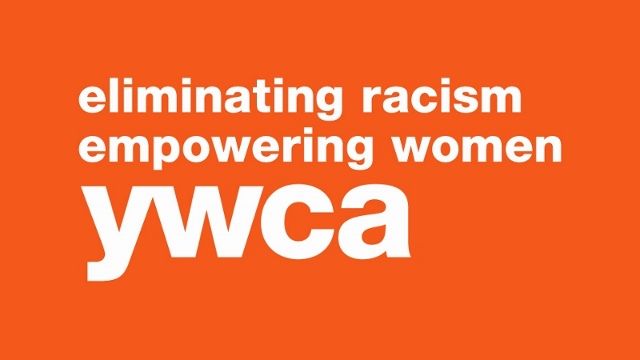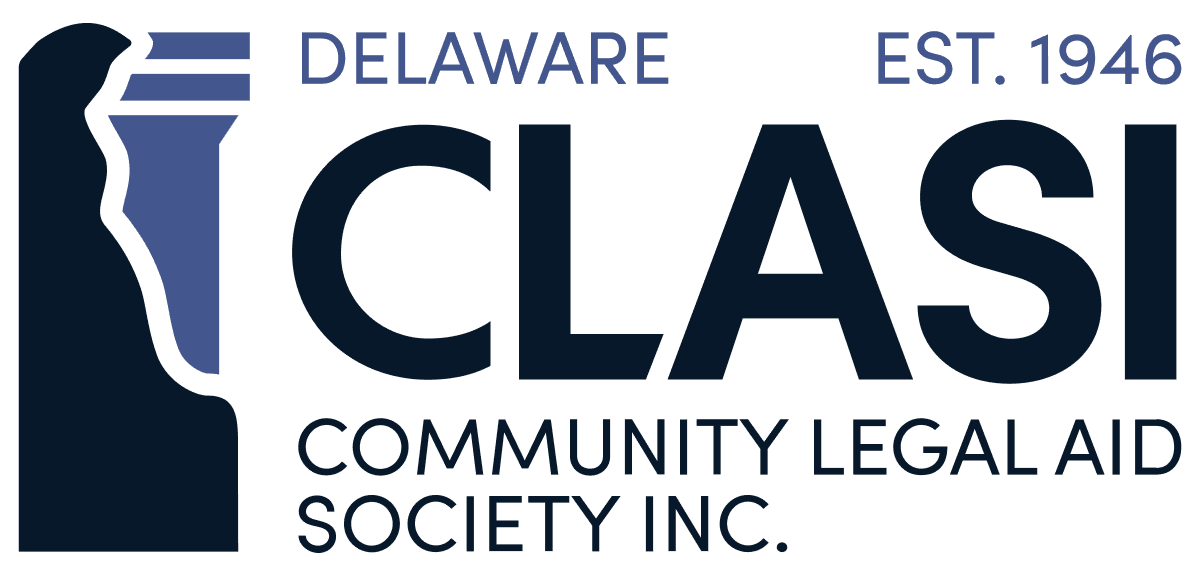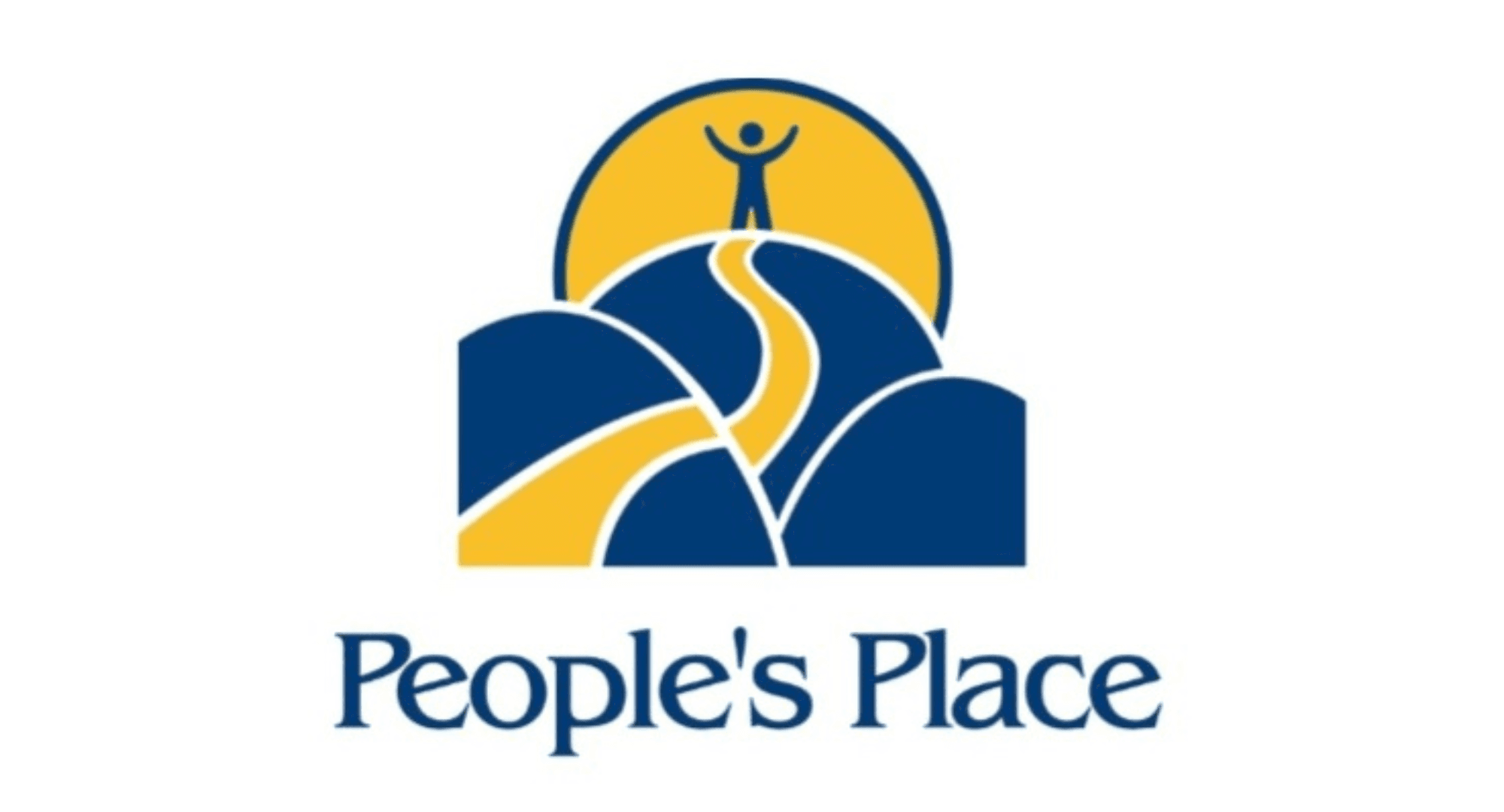DCADV, in collaboration with the Domestic Violence Task Force Housing Subcommittee, Delaware State Housing Authority, and Community Legal Aid Society, Inc., have compiled short videos to discuss different issues related to housing. Click on the photo or title of each video to watch.
Housing Information
-
25 minutes; Bridget Walters from CHILD, Inc. provides an overview of protections available, and considerations for survivors to make in deciding to stay in their home or leave.
Housing Resources
-
18 minutes; Chris Whaley of the Delaware State Housing Authority provides an overview of the subsidized housing programs in Delaware, as well as the various housing authority agencies located across the state.
-
13 minutes; Tricia Conley of the Delaware State Housing Authority, provides an overview of the subsidized housing types that are available across the state.
-
22 minutes; Devon Manning of the Delaware State Housing Authority, provides an overview of the tax-credit target housing units available in Delaware and the search/referral process for those seeking housing.
-
22 minutes; In this video, Devon Manning of the Delaware State Housing Authority provides a live demonstration of how to search for housing on DelawareHousingSearch.org.
Housing Protections
-
9 minutes; Tony Sierzega of Community Legal Aid Society, Inc. provides an overview of the housing protections for survivors of domestic violence and sexual violence under the federal Violence Against Women Act (VAWA).
-
9 minutes; Tony Sierzega of Community Legal Aid Society, Inc. provides an overview of housing protections for domestic/sexual violence survivors under the Fair Housing Act.
-
9 minutes; Tony Sierzega of Community Legal Aid Society, Inc. provides an overview of protections for survivors under Delaware's landlord-tenant laws.
-
5 minutes; Tony Sierzega of Community Legal Aid Society, Inc. describes other protections for survivors related to their privacy/confidentiality and housing.
Assessing Housing Needs
Safe housing is foundational to survivors’ movement toward self-determination and healing. Regardless of a survivor’s point of contact with a DV advocate (shelter, CPS, courthouse, Family Justice Center, culturally specific program, or other setting), assessing their housing needs is a best practice. Conversation-based approaches such as the “Decision Tree” are survivor-driven, trauma-informed, and honoring of survivors’ multiple and intersecting identities. In this webinar (recorded in August 2021), presenters explore the development of such approaches and how advocates can use them to guide their conversations with survivors and help direct them to the best housing resources.

